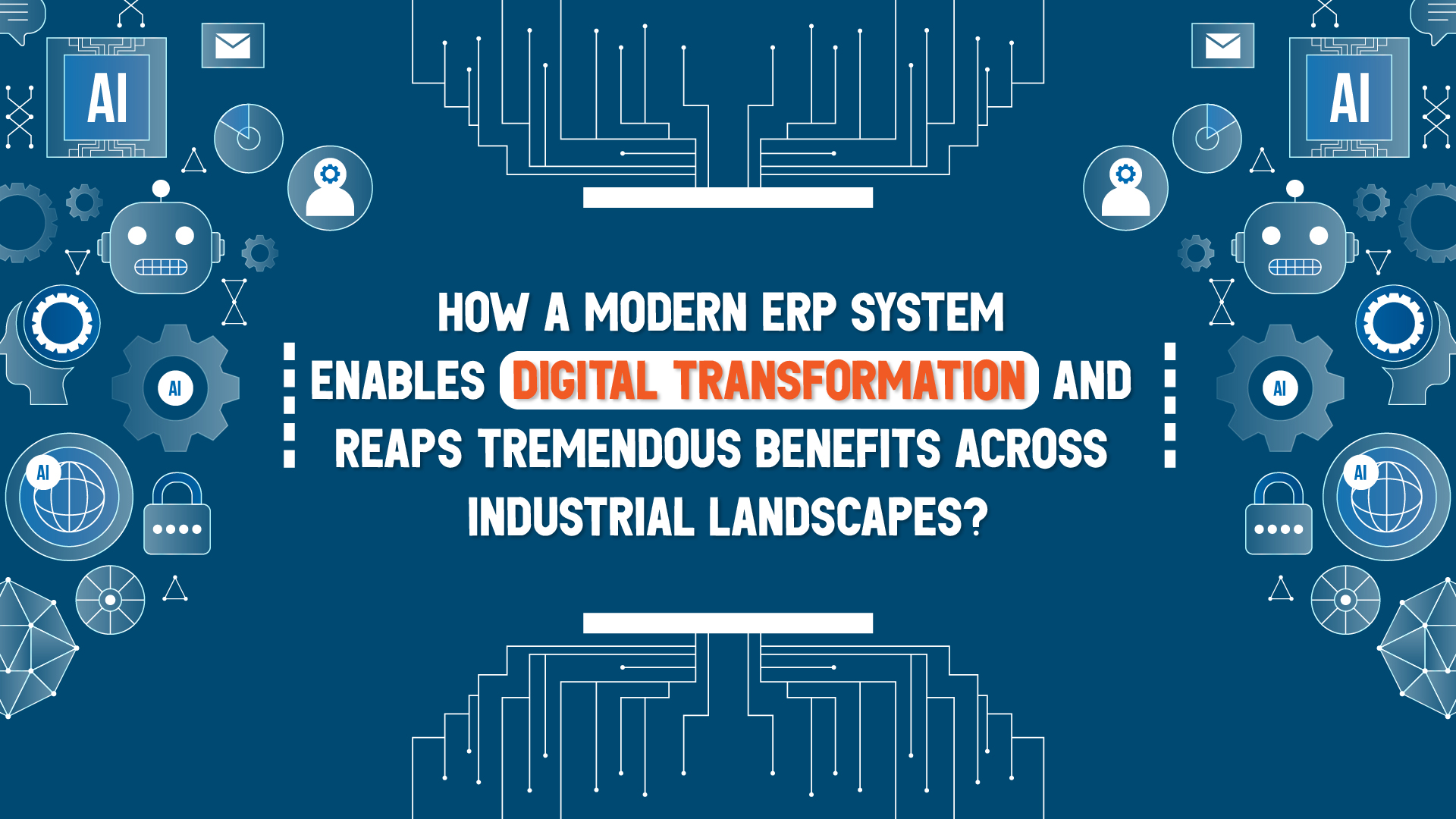
- Roadmap
- 10-Oct-2023 09:48:33
How Do the Latest ERP Systems Incorporate Artificial Intelligence (AI), Breaking New Ground and Forging Ahead across Industries?
With the current global prevalence of unstable business environments, many complexities will transpire during business operations. Although conventional ERP systems help manage day-to-day business processes such as finance, supply chain, human resources, and others; they are no longer satisfactory for businesses to combat the challenges in the market today.
Now, business leaders have started realizing the need to adopt advanced technologies to stay relevant and remain future-proof. With the advent of ML and AI, new automation opportunities are arising. And it's no wonder that there has been so much buzz about AI in recent times, which caused massive disruption in the tech industry by altering the way businesses operate with new business models and workflows.
They started investing more in AI-powered ERP systems, which ushered a transformation era for businesses, increasing high value through automation, enhanced productivity, and freeing up time to concentrate on what matters most and fostering future business growth.
AI-enabled ERP systems automate repetitive and mundane tasks, enabling employees to focus on more strategic activities. Machine learning algorithms encourage intelligent data processing, reducing manual efforts, and improving accuracy.
Let's dive in and find out how AI is embedded into ERP systems and its impact on transforming digital business processes.
Advanced Analytics
Advanced analytics is a set of techniques for discovering relationships, recognizing patterns, forecasting trends, and discovering associations in data. The whole advanced analytics process has 4 phases for its full completion. They are descriptive, diagnostic, predictive, and prescriptive analytics. These analyses will allow us to know what happened in our company, why it happens, what will happen, and how we can make something happen. Also, it enables businesses to gain deeper insights and make data-driven decisions conclusively based on market trends, customer preferences, and key business activities.
It is also helping companies reduce the efforts needed to review documents, track the status of projects, and solve project management issues.
Supply Chain Optimization
The pandemic and the subsequent disruptions have demonstrated the dramatic impact of uncertainties on supply chains and have established the need for smart contingency plans to help companies deal with such bleak times. AI in supply chains can deliver the powerful optimization capabilities required for improved demand forecasting, enhanced productivity, lower supply chain costs, and greater output, and withal can foster safer working conditions.
Natural Language Processing (NLP)
Conversational AI in ERP employs machine learning (ML), natural language processing (NLP), and other AI techniques to make ERP systems more intelligent and responsive. NLP allows ERP systems to understand and process human language, improving user interfaces and facilitating more effective communication between users and the ERP system. Chatbots and voice commands can also be integrated to provide user assistance. This can make ERP systems more accessible and easier to use, especially for non-technical users.
Personalized User Experiences
AI-enhanced ERP systems provide personalized user experiences by tailoring interfaces, workflows, and recommendations according to the preferences and needs of individual users. It improves user satisfaction and customer engagement through personalized interactions.
Robotic Process Automation (RPA)
AI-powered bots and RPA tools can automate repetitive tasks such as data entry and invoice processing, reducing human error and freeing employees to focus on more strategic tasks.
Quality Control and Maintenance
AI can monitor production lines and equipment in real time, predict maintenance needs, and identify defects early in the manufacturing process, reduce downtime, and ensure product quality.
Customer Relationship Management (CRM)
AI-enhanced ERP systems can analyze customer data to provide personalized recommendations, improve customer service, and enhance customer retention strategies.
Fraud Detection and Security
Fraud detection and security are critical aspects of any AI-enabled ERP system. AI algorithms can identify unusual patterns or behaviors in financial transactions, helping ERP systems detect and prevent fraudulent activities and enhance cyber security.
HR and Talent Management
Using RPA bots, firms can continuously track the employee portal and will update it when a new employee is hired. The system can automatically read the employee's contract and assist with talent acquisition by analyzing resumes and matching candidates with job requirements.
Continuous Learning and Improvement
AI-powered ERP systems continuously improve performance and adapt to changing business needs from user interactions and data patterns.
In summary, AI-embedded ERP systems bring forth transformational digital business processes by enabling data-driven decision-making, automating tasks, optimizing operations, enhancing user experiences, and increasing efficiency across various functional areas within an organization. Also, it empowers businesses to stay competitive and agile in an increasingly complex and data-centric digital environment.
.jpg)


